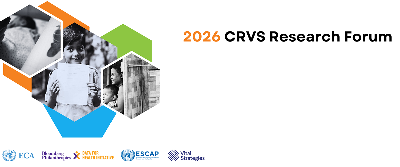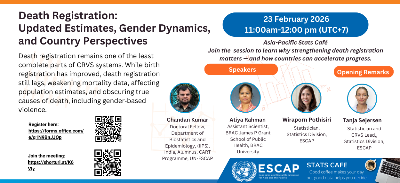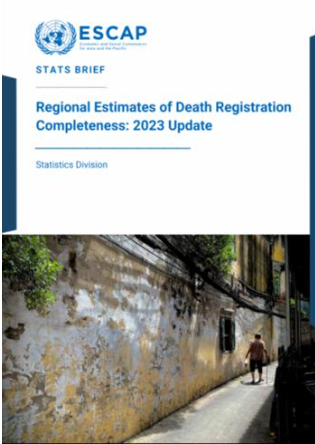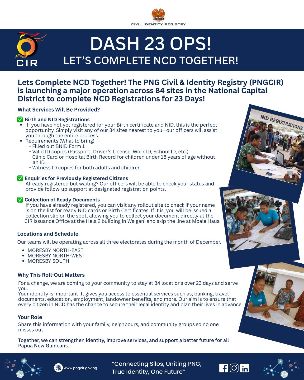(Newsletter: CRVS Insight December 2020)
The COVID-19 pandemic is challenging country mortality surveillance systems in unprecedented ways, while also highlighting the necessity for accurate, timely and reliable mortality data. Without high quality data on communities impacted by the virus, local decision-makers are unable to direct resources to the most vulnerable. Implementing rapid mortality surveillance and improving the quality of death statistics—including causes of death— therefore has never been more relevant as the global community calculates and responds to the toll of the virus’ impact. Rapid mortality surveillance bolsters availability and quality of critical data in CRVS systems unable to universally register deaths nationwide.
Currently, a number of ESCAP member states, including Bangladesh, are working to establish rapid mortality surveillance as a means for generating high-quality mortality data. And as part of the Asia-Pacific Stats Café Series, Vital Strategies and Bangladesh will highlight the lessons learned from this valuable tool and describe how they are using the rapid mortality surveillance to generate high-quality statistics to get every one in the picture. For more information and to read more about rapid mortality surveillance, please also visit the ESCAP blog site.












